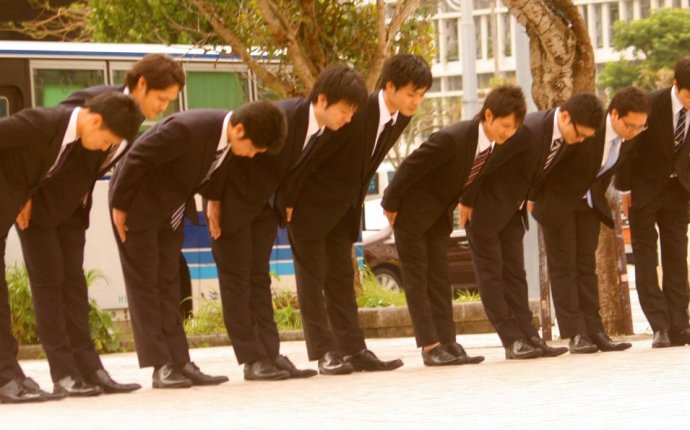
Doing business in japan culture
Japanese business culture is wrongly perceived as the biggest obstacle to starting business in Japan for many foreign companies thinking of entering the Japanese market.
I am not an academic and my interest in Japanese business culture is purely in terms of how it affects the actual mechanics (or tactics) of successfully doing business in Japan. Based on 13 years of direct sales and executive experience in the Japanese market, I will try to give an insider's perspective of the way Japanese businesspeople think and companies make decisions, so that you may understand what is going on on 'the other side of the table'.
Many foreign companies never do start business in Japan (or only enter the Japanese market through a distributor) simply because of the misconception, fueled by those infamous myths of doing business in Japan, that dealing with Japanese business culture is somehow too risky. Fortunately, Japanese business culture is not an impenetrable barrier to successful business in Japan, as proven by the very substantial Japanese market share enjoyed by Yahoo!, BMW, Mercedes-Benz, Chanel, Louis Vuitton, Tiffany & Co. and many others.
Inevitably Japanese business culture is different to that of the US or Europe, but the differences do not make it any more risky to do business in Japan than elsewhere in the world. In fact, certain aspects of Japan's business culture, especially the very stable long-term relationships resulting from the conservative Japanese sense of loyalty to trusted partners, can be very beneficial for those foreign companies that understand how to swim with the cultural tide as opposed to vainly struggling against it.
So just what is Japanese business culture and how is it different?
The differences are there from the moment you arrive at Tokyo's Narita International Airport - the white-gloved baggage carriers carefully lining up your luggage on the conveyor, the incredibly polite customs inspectors, the cleaner standing at the top of the escalator (if you are going down to the Narita Express train station) making sure that the escalator hand rail is clean, the cleaning staff quickly and silently cleaning and leaving the train, the girl on the platform who politely bows to you as you board the train, the ticket inspector on the train who stands at the front of the carriage, removes his hat and bows before proceeding to inspect tickets etc. It is the same when you arrive at your hotel - when the bell-boy bows and opens the door, when the porter shows you more information about the buttons beside your bed than you can possibly remember, they are doing it for you the customer.
When you enter a Japanese store or even a bar, you will be greeted by shouts of 'irrashaimase' (welcome) and when you leave there will be shouts of 'domo arigato gozaimashita' (thank you) and you will notice that everyone, even the chef will join in the 'chorus'! The difference you should notice is that they are all very service oriented and of course service is a pillar of Japanese business culture. In the US and Europe, personal service has become something that people must pay for with tips - in Japan there is no tipping, personal service is literally 'part of the service'.









